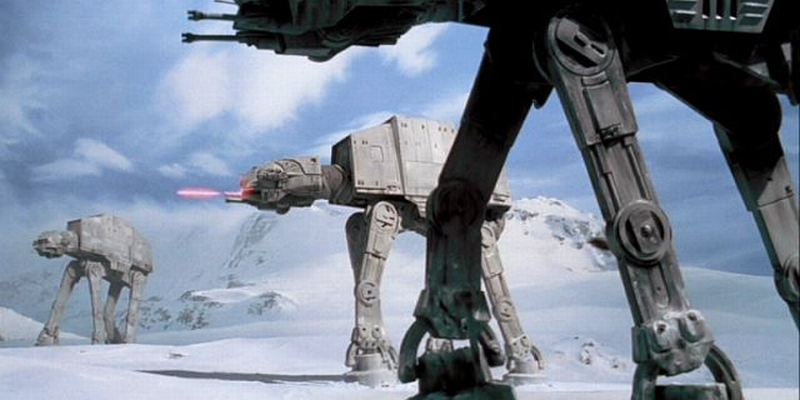Stereocognition, intelligence and the movies
Wednesday, February 20th, 2013[ by Charles Cameron — Zero Dark Thirty & Manhunt, fact and fiction, that old saw about who it is that gets to write history, thence onwards to theology & the arts, von Balthasar & Tolkien, winding up watching UK & US versions of House of Cards with son David ]
.
How’s this for stereoscopy?
**
You may know I’m preoccupied with the notion of extending the stereo concept — using twin sources to add a depth dimension to one’s perception — from stereophonic audition and stereoscopic vision to stereocognition more generally.
Nada Bakos‘ image above shows a cinema in which documentary and fictional versions of the story of the hunt for bin Laden are playing simultaneously. The fiction, Kathryn Bigelow‘s Zero Dark Thirty, I saw a couple of days ago, and neither I nor son Emlyn, 17, were terribly enthused: the Camp Chapman scene was the one that touched me most deeply.
I’ll no doubt want to see both films, but it’s Greg Barker’s documentary, Manhunter, that will interest me the most, the more factual of the two. And yet that’s curious in and of itself, because as a poet I’m usually interested in the mythic and imaginative as much as or more than the “merely” factual, and I tend to think of the movies as providing a mythology for our times.
Okay, let me give you the two quotes that get to the heart of my sensibilities about fact and fiction at the movies.
What, after all, happens in a movie theater after the lights dim and the curtain rises? F Scott Fitzgerald tells us what happens in the mogul’s screening room, but it’s the same with us peons, isn’t it?
Dreams hung in fragments at the far end of the room, suffered analysis, passed — to be dreamed in crowds or else discarded.
And I’m also with the poet Kathleen Raine, who said:
Myth, when a real event may be the enactment of a myth, is the truth of the fact and not the other way around…
So where does that leave me?
Right now, it leaves me feeling that in the case of these two filmic treatments of the same “true story” — and no doubt many others — history will likely be “written” by the entertainment makers, not the documentarists. Paradoxically, a sad thought.
But let’s go beyond that.
**
I said I’m preoccupied with the notion of using twin sources to add a depth dimension to perception — from stereophonic audition and stereoscopic vision to stereocognition more generally. Another way to say that is that I’m interested in figuring out how to think contrapuntally, and how to score contrapuntal thought — thought which holds two or more potentially conflicting concepts in mind simultaneously, so as to arrive at a deeper understanding than one perspective alone can provide…
I’ve talked about these modes of stereoscopic / contrapuntal cognition before, in posts such as Form is insight: a musical experiment and Silent reading, silent thinking, bifocal glasses, and I’m always delighted when I run across a new very bright thinker (Glenn Gould, Edward Said [Power, Politics, and Culture p. 447}, Wm Blake) playing with these ideas — today it’s the late theologian Hans Urs von Balthasar in his book Truth Is Symphonic: Aspects of Christian Pluralism, who speaks of “the entire polyphony of revelation”, suggests that:
In his revelation, God performs a symphony, and it is impossible to say which is richer: the seamless genius of his composition or the polyphonous orchestra of Creation that he has prepared to play it
and states that “Even eternal Truth itself is symphonic.” The only stronger statement I know of concerning the contrapuntal nature of the world from within the Catholic tradition is JRR Tolkien‘s extraordinary short masterpiece of a creation myth, The Music of the Ainur [scroll down at link], with which he begins the Silmarillion.
So the contrapuntal idea is present in theology, as well as the arts…
**
Stereoscopy, counterpoint.
I’ve been watching the TV series, House of Cards, with my fourteen-year old, David — we’ve now seen the whole first series of the UK version together, and the beginning of the US version, and it’s fascinating to notice the differences.
Frank Underwood (Kevin Spacey):
Francis Urquhart (Ian Richardson):
See both shows, form your own conclusions…
And their source?
Now I shall have to watch Richard III with David, too.






